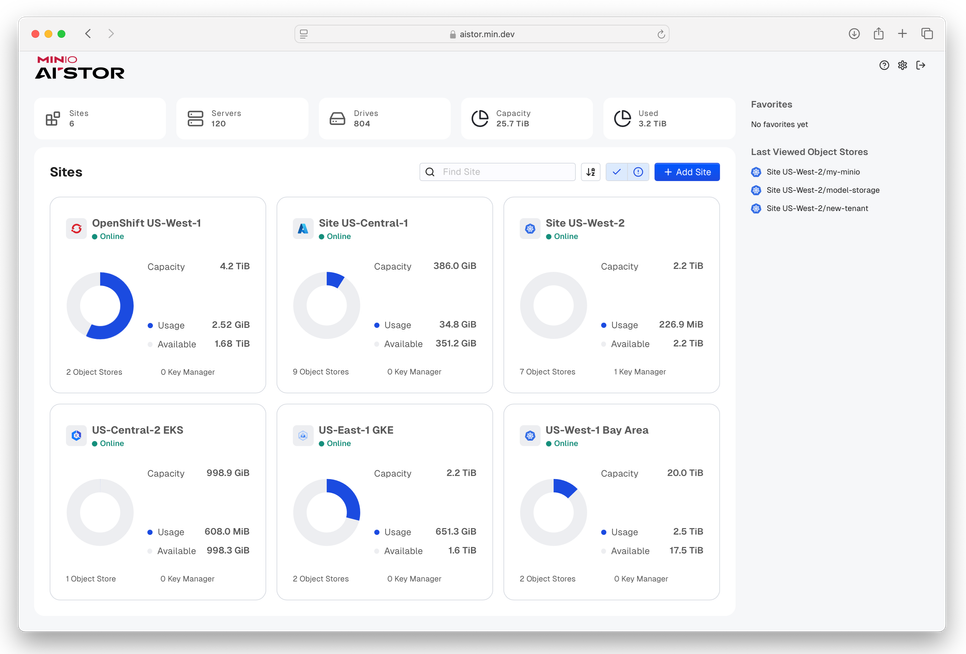MinIO, the popular open source object storage system, is known for its performance and ease of use. However, in the face of the rise of generative AI, MinIO chose to embrace the changes and launched a new AI centralized object storage solution - AIStore. The editor of Downcodes will give you an in-depth understanding of this major transformation of MinIO and how AIStore empowers AI applications.
MinIO is a popular open source S3-compatible object storage system that is widely used for various data storage needs due to its excellent performance and ease of use. However, with the rapid rise of generative AI, MinIO recognized the opportunity to launch an AI-centric object storage solution. Therefore, today MinIO officially released AIStore.

AB Periasamy, founder and CEO of MinIO, is known for not adding new features easily. He once said, "We try very hard not to add new features." This simple development philosophy has helped MinIO achieve good results since its launch in 2014. market performance. Two years ago, MinIO reported that the project was serving over one million Docker downloads per day.
However, since the advent of ChatGPT in November 2022, the wave of generative AI has swept across, and enterprises' demand for big data has increased sharply. “We have multiple customers with over 1 EB of data storage, and their workloads are very different than they used to be,” said Jonathan Symonds, Chief Marketing Officer of MinIO. Today, enterprises store large amounts of unstructured data in MinIO’s object storage, specifically Used to build and train AI models.
To cater to this emerging market, MinIO launched the DataPod reference architecture earlier this year. The launch of AIStore is a major transformation of MinIO in response to market demand and focusing on AI applications. AIStore adds features specifically designed for AI to MinIO's flagship product, including a new S3-compatible API "promptObject" that allows users to query unstructured data through natural language.
In addition, AIStore also supports high-speed RDMA connections to help solve network bottlenecks that occur in large-scale storage clusters. The newly introduced AIHub feature allows users to securely store AI models in their own environment. This alternative has important security and governance advantages.
Periasamy said that MinIO will continue to develop its products in the direction of AI and is committed to providing customers with more efficient data storage and processing solutions. "We are not going to fight for multiple use cases, but focus on the key use case of AI and make it bigger and stronger."
The release of AIStore marks a solid step for MinIO in the AI field, providing more powerful data storage and management capabilities for enterprise-level AI applications. Future development is worth looking forward to!